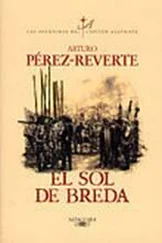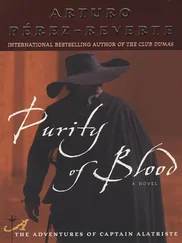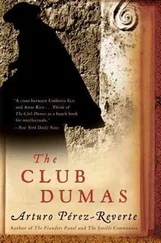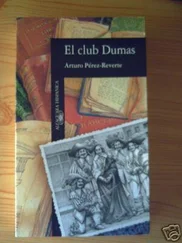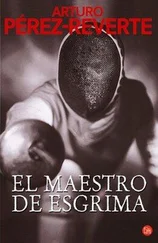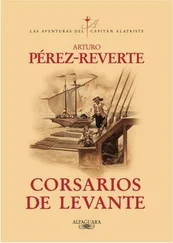Diego Alatriste put the letter away in his doublet and climbed into the skiff beside me amongst the bundles containing our luggage. The boatmen’s voices rang out as they leaned upon the oars, which splashed in the water, and we gradually left behind us the Jesús Nazareno, where it lay motionless in the still water, along with the other galleons, so imposing with their high, pitch-black sides, their red paint and gilt glinting in the daylight, the spars and the tangled rigging rising up into the sky. Shortly afterward, we were back on land, feeling the ground sway beneath our uncertain feet. After weeks confined to the deck of a ship, we found it bewildering to be amongst so many people and with so much space in which to move about. We delighted in the food on display outside the shops: oranges, lemons, raisins, plums, salt meat, and fish, the white bread in the bakeries, the pungent smell of spices, and the familiar voices touting all kinds of unusual goods and merchandise: paper from Genoa, wax from Barbary, wines from Sanlúcar, Jerez, and El Puerto de Santa María, sugar from Motril . . . The captain stopped at a barber’s, who shaved him and trimmed his hair and mustache, and I remained at his side, gazing happily about me. In those days, Cádiz had not yet displaced Seville in importance as regards the route to and from the Indies, and the city was still small, with only four or five inns and taverns, but its streets, frequented by people from Genoa and Portugal, and by black slaves and Moors, were bathed in a dazzling light, the air was transparent, and everything was bright and cheerful and a world away from Flanders. There was barely a trace of the recent battle, although everywhere one saw soldiers and armed civilians, and the Cathedral square, our next stop after the barber’s, was packed with people going to church to give thanks to God that the city had been saved from being plundered and burned. A messenger, a freed black slave sent by don Francisco de Quevedo, was waiting for us there as arranged, and while we took a cool drink at an inn and ate a few slices of tuna with white bread and green beans drizzled with olive oil, he explained the situation. After the alarm provoked by the English attack, every horse in town had been requisitioned, and the safest way, therefore, to reach Seville was to cross over to El Puerto de Santa María, where the king’s galleys were anchored, and there board a galley that was preparing to sail up the Guadalquivir to Seville. He had, he said, arranged for a small boat with a skipper and four sailors to take us to El Puerto, and so we returned to the port and, on the way, were given documents signed by the Duque de Fernandina—a passport granting free passage and embarkation as far as Seville “to Diego Alatriste y Tenorio, one of the king’s soldiers on leave from Flanders, and to his servant Íñigo Balboa Aguirre.”
In the port, where bundles of soldiers’ luggage and equipment were being piled high, we bade farewell to the few comrades still lingering there—as caught up in their card games as they were with the local whores, who, in their distinctive half-capes, were taking full advantage of the recent disembarkation to seize what booty they could. When we said our goodbyes, Curro Garrote was already back on dry land, crouched beside a gaming table that guaranteed more tricks and surprises than spring itself, and playing cards as if his life depended on it, his doublet open and his one good hand resting, just in case, on the pommel of his dagger, while his other hand traveled back and forth between his mug of wine and his cards, which came and went accompanied by curses, oaths, and blasphemies, as he saw half the contents of his purse disappearing into someone else’s. The Malagueño nevertheless interrupted his activities to wish us luck, adding that he would see us again somewhere, here or there.
“And if not there,” he concluded, “then in Hell.”
Next, we said goodbye to Sebastián Copons, who, as you will remember, was an old soldier from Huesca, small, thin, and wiry, and even less given to talking than Captain Alatriste. Copons said that he was thinking of spending a few days’ leave in Cádiz and would then, like us, travel up to Seville. He was fifty, with many campaigns behind him and far too many scars on his body—the latest, earned at the Ruyter mill, had traced a line from his forehead to his ear—and it was, he said, perhaps time to be thinking about going back to Cillas de Ansó, the little village where he’d been born. A young wife and a bit of land of his own would suit him fine, if, that is, he could get used to driving a spade into the earth rather than a sword into the guts of Lutherans. My master and he arranged to meet up again in Seville, at Becerra’s. And when they said goodbye, I noticed that they embraced in silence, with no fuss, but with a stoicism typical of both.
I was sorry to leave Copons and Garrote, even though, despite all we’d been through together, I had never warmed to the latter, with his curly hair, his gold earring, and his disreputable air, but they were the only two comrades from our company in Breda who had traveled back to Cádiz with us. All the others had, in one way or another, been left behind: Llop from Mallorca and Rivas from Galicia were lying six feet under the Flemish earth, one at the Ruyter mill and the other in the barracks at Terheyden. Mendieta from Vizcaya—always assuming he was alive to tell the tale—would be lying in a gloomy military hospital in Brussels, prostrated by the black vomit, and the Olivares brothers, taking with them as page my friend Jaime Correas, had reenlisted for a new campaign in the regiment led by don Francisco de Medina, when our Cartagena regiment, which had suffered so much during the long siege of Breda, was temporarily disbanded. The war in Flanders had been going on for a long time, and it was said that after all the money and lives the last few years had cost, the Conde-Duque de Olivares, minister and favorite of our King Philip IV, had decided to place our army there on a defensive footing only, in order to cut expenses, reducing the fighting force to an indispensable minimum. The fact is that six thousand soldiers had been discharged either voluntarily or by force, which is why the Jesús Nazareno was returning to Spain full of veterans, some of them old and infirm, some having been paid off, either because they’d completed the regulation period of service or because they were being posted on to different regiments and units in Spain itself or around the Mediterranean. Many of them were weary of war and its perils, and might well have agreed with that character in a Lope de Vega play: What have the Lutherans
ever done to me?
The Lord Jesus made them,
And He can slay them—
If He so chooses—
Far more easily than we.
The freed slave sent by don Francisco de Quevedo also took his leave of us in Cádiz, having first shown us to our boat. We climbed aboard and were rowed away from the shore, and after we had again passed our imposing galleons—it was strange to see them from so low down—the skipper, judging that the wind was right, gave orders for the sail to be raised. Thus we crossed the bay, heading for the mouth of the Guadalete, and at evening we joined the Levantina, an elegant galley anchored along with many others in the middle of the river—all with their lateen yards and spars tied up on deck—opposite the great salt mountains that rose like heaps of snow on the left bank. The city, white and tawny, stretched away to the right, with the tall castle tower protecting the mouth of the anchorage. El Puerto de Santa María was the main base for the king’s galleys, and my master knew it from the time when he set sail against the Turks and the Berbers. As for the galleys, those war machines propelled by human blood and muscle, he knew far more about them than most would care to. That is why, after presenting ourselves to the captain of the Levantina, who glanced at our passport and gave us permission to stay on board, Alatriste found us a comfortable place near a crossbow embrasure—having first greased the palm of the galleymaster in charge of the rabble with a silver piece of eight—and remained awake all night, his back resting against our luggage and his dagger at the ready. As he explained in a whisper, a faint smile on his lips, it would take at least three hundred years in Purgatory before even the most honest of galley slaves—from the captain down to the last forced man—was given his discharge papers and allowed into Heaven.
Читать дальше

